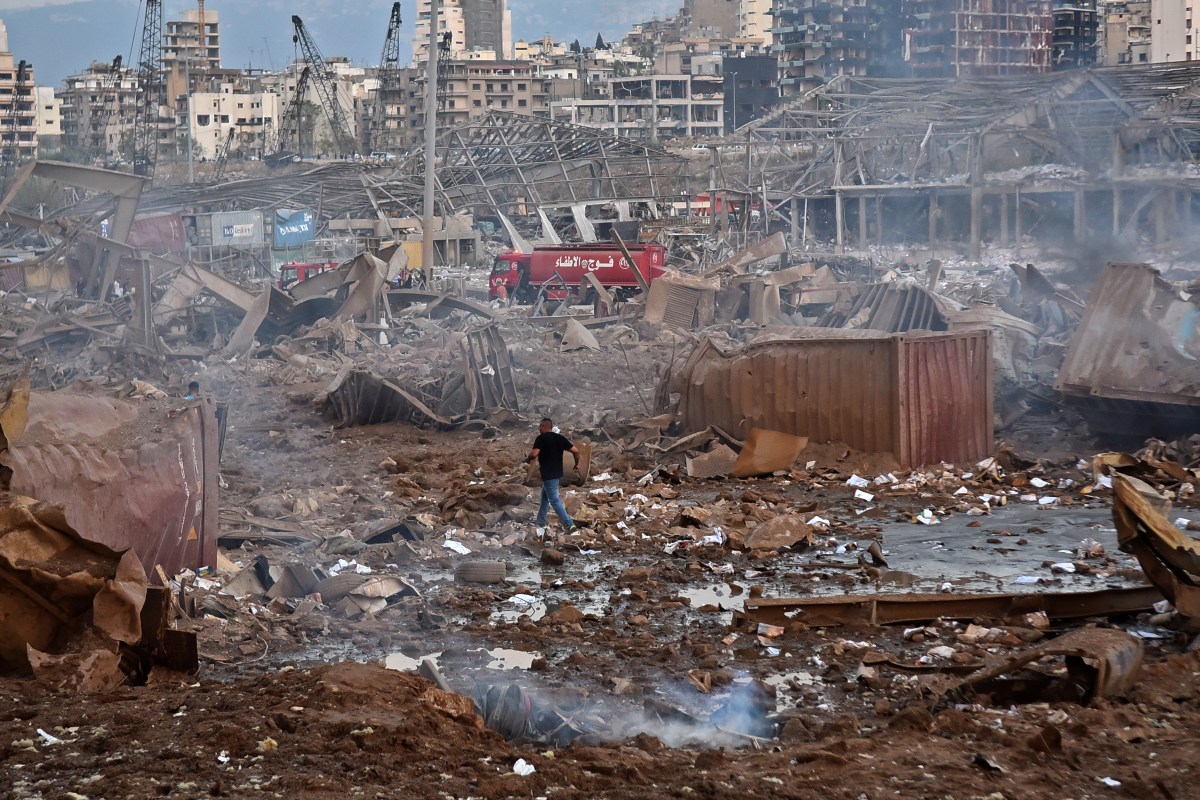The explosion in Beirut adds to the suffering being endured by the country with the highest per capita Christian population in the Near East.
Lenten Campaign 2025
This content is free of charge, as are all our articles.
Support us with a donation that is tax-deductible and enable us to continue to reach millions of readers.
The August 4 explosion in Beirut was an event of apocalyptic proportions. Already devastated by economic instability, political corruption, and the pandemic, this explosion and its aftermath adds to the suffering being endured by the country with the highest per capita Christian population in the Near East.
As Poland has been called the Christ of Europe for all it suffered, so Lebanon might be considered the Christ of the Middle East for its agony, its passion, and its capacity for witness.
Father Michel Rouhana, a priest of the Antonine Maronite Order, was born in the majority-Christian Lebanese town of Beit Mery overlooking Beirut. He describes his hometown as a place of conviviality between Druze, Greek Orthodox, and Maronites.
Given the town’s archaeological and touristic significance, the Brothers of Jean Baptiste de la Salle in cooperation with the French consulate, founded in 1880, one of the first French Catholic schools there. Fr. Rouhana’s parents sent him and his brothers there, while his sisters attended French-based schools run by nuns. “I was fond of my religious teachers (Les Frères). At eleven years old, I desired to be one of them,” Fr. Rouhana reminisces.
The Maronite Church is in full communion with Rome, a fact that undeniably contributes to Fr. Rouhana’s universal spirit. Upon finishing high school, he was already fluent in Arabic, French, and English. During his novitiate he studied Syriac-Aramaic, which he uses daily. Through his priestly formation, he learned Italian. He earned a master’s degree at the University of Toronto – St. Michael’s College, followed by a PhD from Kaslik University in Lebanon.
While Lebanon may not always be top of mind for Catholics worldwide, it is important to remember that Lebanon is part of the Holy Land and that Lebanon has a modern mission, too.
In 1989, Pope Saint John Paul II famously said, “Lebanon is more than a country: it is a message of freedom and an example of pluralism for the East as well as for the West.” Fr. Rouhana echoes this today: “[Lebanon is a message] of conviviality, hospitality” and “It is a must to underline that neither Our Lady nor the Saints in Lebanon discriminate between humans. The gifts of sanctity and holiness, according to our Catechism, belong to all humans – Christians, Muslims, and Jews alike, once they ask for it with faith and trust.”
There are other lessons for us in the message of Lebanon amid the pandemic. The longstanding Maronite traditions of discipline and solitude that allow for reflection on the first and last things, are useful tools when facing adversity.
Fr. Rouhana notes, “After the most relevant comparative studies of the different Levant civilizations and the Bible, it results obviously that the phenomenon of asceticism and seclusion from the temporal groups and societies was common. Distancing oneself from humans to reflect on the self-existential conditions is a deep-rooted psychological skill. The religious side of this inclination has to do with inspiration and intervention of the Holy Spirit, or the Word of God.”
Psalm 92 is much loved by Jews and Maronites alike. During the Sabbath, it is recited three times because this psalm glimpses the future spiritual perfection of the world to come. One of the verses – “The righteous flourish like the palm tree, and grow like a cedar in Lebanon” – is engraved in Aramaic beneath a statue of St. Maron that was unveiled at the Vatican and blessed by Pope Emeritus Benedict XVI in 2011.
Reflecting on this, Fr. Rouhana says, “Mount Lebanon, in all that it represents, and especially the cedar tree, is for us, Maronites, the natural Holy Land preserved by the Triune God to prepare for the Spiritual Holy Land. Maronites didn’t choose Lebanon as our homeland. Saint Maron lived and died near Aleppo in north Syria. We, as Maronites, similar to the Jewish People, insist on the fact that the God granted us the honorable mission to protect, preserve and serve this natural temple. Like the Jewish people, we went through a lot of suffering and massacres to finally forge the Lebanese identity.”
Fr. Rouhana continues, “That is why, I, personally, consider that faithful, open-minded Jews and Maronites should not only sing together Psalm 92 and invite humans to be ‘just’ – the top qualification given to a Jewish person – but also strengthen their academic collaborations to accomplish what God has ordered them to do according to the prophet Isaiah.”
“‘Justs’ are not only males,” he notes. “Behind each saint or martyr, there is a mother, not merely a woman. For us, Maronites, in our widespread belief, Mary is Co-redemptrix. This truth is an integral point of our faith and different hymns sang during masses express it. Mount Lebanon and Mount Zion should cooperate to strengthen the conception of the New Eve. There cannot be a New Adam without a New Eve.”
Will Christians continue to remain in Lebanon? Father Rouhana acknowledges “our being in Lebanon is within the Hands of the Holy Providence.” And it is this spirit of faith and trust that enables him to proclaim with confidence, “We have been cherished by the Lord, as He has foreseen the suffering we are going to go through all over our history when he said: ‘Do not be afraid, little flock, for it is your Father’s good pleasure to give you the kingdom.’”









